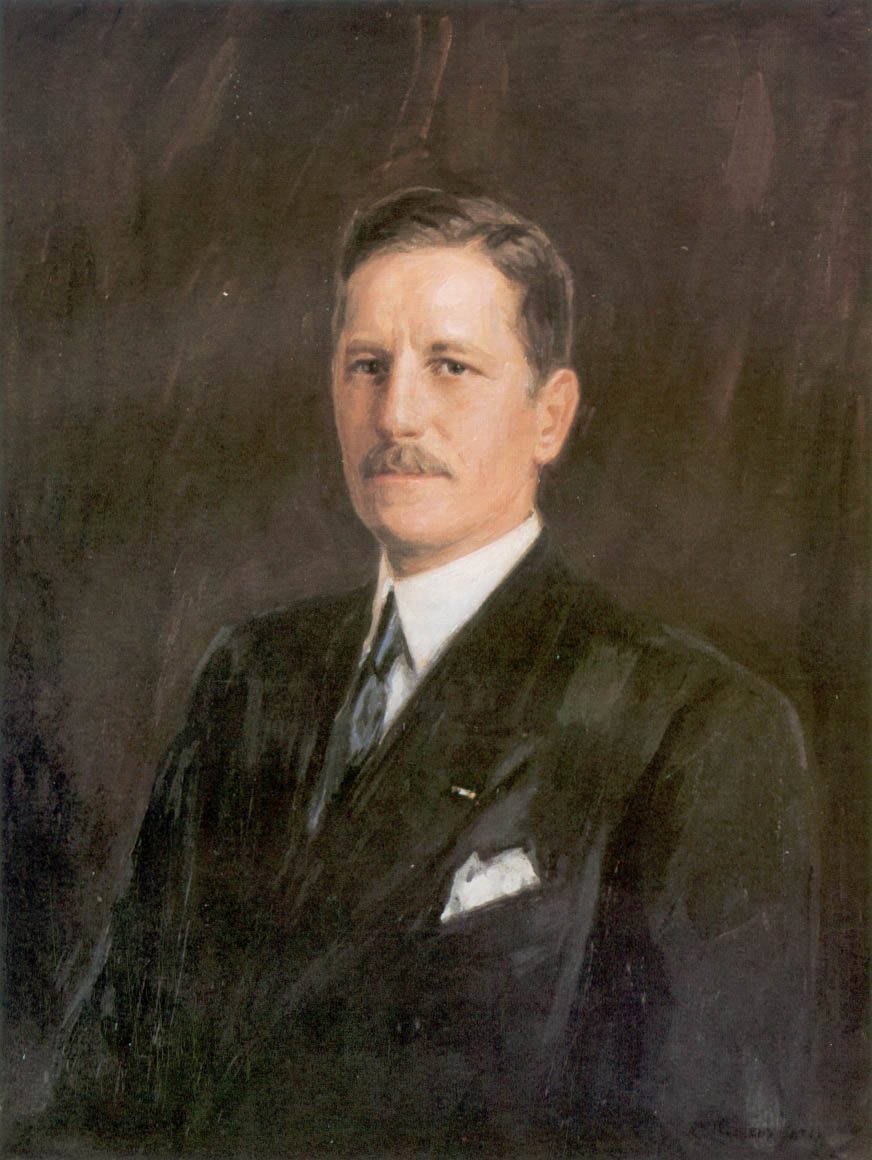- Patrick J. Hurley
Infobox US Cabinet official
name=Patrick Jay Hurley
order=51st
title=United States Secretary of War
term_start=December 9 ,1929
term_end=March 4 ,1933
president=Herbert Hoover
predecessor=James W. Good
successor=George H. Dern
birth_date=birth date|1883|1|8|mf=y
birth_place=Indian Territory , U.S.
death_date=death date and age|1963|7|30|1883|1|8|mf=y
death_place=Santa Fe, New Mexico , U.S.
party=Republican
spouse=
profession=Politician ,Lawyer Patrick Jay Hurley (
January 8 ,1883 , Choctaw Nation,Indian Territory —July 30 ,1963 , Santa Fe, NM) was an American soldier, statesman, and diplomat.He has since been known as 赫尔利 in
China , atransliteration of hislast name .1908—1941
Hurley started a law practice in
Oklahoma in 1908 and served as a colonel in theAmerican Expeditionary Force duringWorld War I . After the war, attendedGeorge Washington University , where he became a member of theSigma Chi fraternity. He became active in the Republican Party and was appointed Assistant Secretary of War by PresidentHerbert Hoover in 1929. He was promoted to Secretary of War after the death of James W. Good and served in President Hoover's cabinet until 1933.World War II
Hurley received a promotion to brigadier general in 1941 when the
United States enteredWorld War II , and GeneralGeorge C. Marshall dispatched him to theFar East as a personal representative to examine the feasibilty of relieving American troops besieged on the island ofBataan . He was successful in delivering additional food and ammunition to the soldiers on three separate occasions, but could not evacuate them.After the conclusion of this mission, he embarked on a series of assignments as a personal representative of President
Franklin D. Roosevelt . He served as minister toNew Zealand in 1942 and then flew to theSoviet Union , becoming the first foreigner to receive permission to visit the Eastern Front. Over the next two years, he visited theNear East ,Middle East ,China , andAfghanistan on behalf of the president before being appointedUS Ambassador to China in 1944.China
Hurley arrived in China in August 1944, as a personal envoy from President Roosevelt to
Chiang Kai-shek . His written directive from the President was as follows::You are hereby designated as my personal representative with the Generalissimo Chiang Kai-shek, reporting directly to me. Your principal mission is to promote efficient and harmonious relations between the Generalissimo and General [Joseph] Stilwell to facilitate General Stilwell's exercise of command over the Chinese armies placed under his direction. You will be charged with additional missions. [Don Lohbeck, "Patrick J. Hurley" (Chicago: Henry Regnery Company, 1956), 280.]
Military operations in China against the Japanese had been severely hampered by a lack of cooperation, bordering upon personal enmity, between Stilwell and Chiang. The strongly anti-Communist Hurley eventually came down on the side of the Generalissimo, and he supported the replacement of Stilwell with General
Albert C. Wedemeyer .Throughout his tenure in China, Hurley felt that his efforts were being undermined by State Department officials, principally John Stewart Service and John Paton Davies in China, and
John Carter Vincent in Washington, who he felt were unduly sympathetic to the Communist forces led byMao Zedong . In early November 1944, upon the resignation of Ambassador Clarence Gauss, Hurley was officially offered the ambassadorship to China, but initially declined "with a statement that the duties he had been called upon to perform in China had been the most disagreeable that he had ever performed--and further, he felt that his support of Chiang Kai-shek and the National Government of China had increased the opposition directed toward himself by the un-American elements in the State Department." Upon receiving a telegram from the President on November 17, urging him to take the job because of the critical nature of the situation, he reluctantly accepted. [Lohbeck, 309.]Hurley's dealings with the State Department did not improve. Moreover, President Roosevelt's February 1945
Yalta Conference with Winston Churchill and Joseph Stalin resulted in a secret agreement in which, among other things, the Soviet Union was granted concessions in China that Czarist Russia had lost in the Russo-Japanese War early in the century. This, Hurley believed, was the beginning of the end of a non-Communist China.He held out hope that after President Roosevelt's death, President Harry Truman would recognize the errors of Yalta and would rectify the situation, but his efforts in that direction were in vain. On November 26, 1945, he submitted a scathing letter of resignation.
"I requested the relief of the career men," he wrote, "who were opposing the American policy in the Chinese Theater of war. These professional diplomats were returned to Washington and placed in the Chinese and Far Eastern Divisions of the State Department as my supervisors. Some of these same career men whom I relieved have been assigned as supervisors to the Supreme Commander in Asia. In such positions most of them have continued to side with the Communist armed party and at times with the imperialist bloc against American policy." [Lohbeck, 430.]
Besides Hoover himself, Hurley was the last living member of the Hoover administration.
Political candidacy
Hurley was the Republican candidate for a seat in the
United States Senate for the state ofNew Mexico in 1946, 1948, and 1952, but he lost all three attempts.References
* Russel D. Buhite, "Patrick J. Hurley and American Foreign Policy", Ithaca, NY: Cornell University Press, 1973. ISBN 0-8014-0751-6
* Don Lohbeck, "Patrick J. Hurley", Chicago: Henry Regnery Company, 1956.
Notes
Wikimedia Foundation. 2010.
